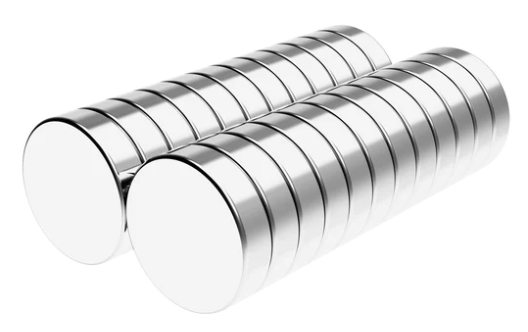Testing for Fake Silver and Gold with Magnets

Neodymium magnets are very strong and can help to test the authenticity of gold and silver bars, coins, bullion, or jewelry. However, it is important to note that this method is not foolproof.
How It Works
Gold and silver are not considered ferromagnetic due to their lack of iron, nickel, and cobalt. With that said, if a neodymium magnet is attracted to the gold or silver, that means that it contains trances of other metals and is not pure.
However, this test is not entirely foolproof. For example, if the item is made from aluminum or copper, it will also not be attracted to a neodymium magnet.
Additionally, some fake jewelry may be made of ferromagnetic materials and still pass the magnet test if the magnet is not strong enough to detect the material. Therefore, it is important to use a strong neodymium magnet when testing jewelry for authenticity.
Gold and Magnets
Gold, despite being classified as a metal, does not possess inherent magnetic properties like Iron, Cobalt, and Nickel do. Pure gold is not magnetic. However, under certain circumstances, gold can exhibit temporary magnetic behavior when exposed to a strong magnetic field. This temporary magnetism is similar to how annealed iron and steel can be magnetized when placed near a permanent magnet.
It is important to note that gold, in its pure form, will not magnetize or attract to a magnet. Nevertheless, certain factors can influence the magnetism of gold. For instance, when gold is alloyed with other metals like iron, zinc, nickel, copper, cadmium, aluminum, silver, platinum, and palladium, it may acquire magnetic properties. The percentage of these metals in the alloy can determine the extent to which gold may be affected magnetically.
Magnet Recommendations
As mentioned above, it's important to use a strong neodymium magnet when testing gold or silver for purity.
We recommend using a strong neodymium disc magnet like the one below to test the authenticity of your gold and silver.

1/2 x 1/8 Inch Neodymium Disc Magnets N42
